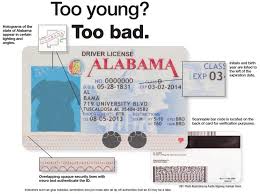How to Check if an ID is Legit: A Comprehensive Guide
In today’s digital age, verifying the legitimacy of an ID is essential for various reasons. Whether you're a business owner, hiring manager, or someone verifying an online transaction, knowing how to check if an ID is legit can save you from potential fraud and identity theft. In this guide, we'll cover the key steps and tools you can use to ensure the authenticity of an ID, including common signs of a fake ID and the best practices for ID verification.

Why is ID Verification Important?
With the rise of online transactions and remote work, it has become easier for criminals to forge documents. Being able to check if an ID is legit protects both individuals and businesses from fraud. Fake IDs can lead to identity theft, financial losses, and even legal consequences. Therefore, ID verification is a critical step in maintaining security and trust.
Steps to Check if an ID is Legit
- Physical Inspection
The first and simplest step to verify an ID is through a physical inspection. Here are some signs to look for when checking if an ID is fake:
- Holograms and Watermarks: Genuine IDs often come with holographic images or watermarks that are hard to replicate. Make sure the ID has these features and that they change appearance when tilted.
- Font Consistency: A fake ID may have inconsistent fonts or poorly printed text. Check for uniformity in the font size and style across the entire document.
- Photograph Quality: Compare the photo on the ID with the person presenting it. The image should be clear, and there should be no signs of tampering.
- Barcode and Magnetic Strip: Many modern IDs come with barcodes or magnetic strips that store digital information. Use a barcode scanner or magnetic strip reader to verify the information matches what's printed on the card.
- Online ID Verification Tools
In addition to physical inspection, using ID verification software can provide an extra layer of security. These tools scan the document for authenticity, check the information against databases, and confirm the ID is legit. Some of the top ID verification software tools include:
- Jumio: A leading identity verification service that uses AI to check ID authenticity.
- Onfido: Known for its robust fraud detection technology.
- ID.me: Popular for verifying government-issued IDs.
These services are particularly useful for online businesses, remote hiring, and financial institutions where physical ID checks aren’t possible.
- Cross-Referencing Public Databases
Another way to verify the legitimacy of an ID is by cross-referencing the data with public or private databases. Many governments offer online portals where you can check the validity of certain IDs, such as driver’s licenses or passports. Make sure to use reputable services that are up-to-date and secure.
Long-tail Keywords: Addressing Specific Concerns
In addition to checking if an ID is legit, some users may have more specific questions. Let's address some of these long-tail keyword phrases:
How to check if a driver's license is legit?
To verify a driver’s license, inspect the physical features mentioned above. Many states and countries also offer online services where you can check the validity of a license using the driver’s license number.How to know if a passport is legit?
Passports have additional security features such as biometric chips, embossed seals, and special inks. You can also check with your country's passport issuing authority for verification. Online tools can help verify passports by scanning the barcode or chip data.How to check if an ID card is fake online?
Several online services allow you to upload an image of an ID card for instant verification. These tools use advanced algorithms to detect forgeries and check against international databases. However, always ensure that the website or service you use for online ID checks is reputable.
Common Red Flags of Fake IDs
While ID verification tools and databases are helpful, being aware of common red flags can also help you determine if an ID is fake:
- Mismatch of Information: If the information on the ID doesn't match what the person provides verbally or online, it’s a clear warning sign.
- Unusual Thickness or Weight: Fake IDs may feel lighter or heavier than legitimate ones due to the different materials used.
- Misspellings and Formatting Errors: Legitimate government IDs rarely contain spelling or formatting errors. Any obvious mistakes should raise suspicions.
Best Practices for Businesses: How to Verify IDs Efficiently
For businesses that need to verify multiple IDs regularly, following best practices will streamline the process and reduce risks:
- Use Multi-layered Verification: Combine physical inspection with digital verification tools for the best results.
- Stay Updated on the Latest ID Formats: Governments regularly update ID designs, so stay informed about the latest security features.
- Train Employees on ID Verification: Educating staff on how to check if an ID is legit can save your business time and reduce the chances of fraud.
- Invest in ID Verification Technology: High-quality scanners, barcode readers, and software can make the verification process fast and accurate.
Conclusion
Knowing how to check if an ID is legit is crucial in today’s world, whether you are verifying a government-issued ID, a driver’s license, or a passport. By following the steps outlined above, including physical inspection, using online verification tools, and checking public databases, you can protect yourself and your business from fraudulent activity. Make ID verification part of your routine to ensure safety and legitimacy in all your transactions.

